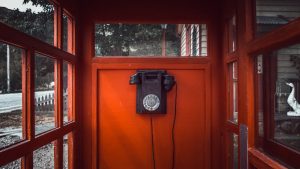North Carolina residents, especially in Raleigh, are protected from intrusive telemarketing calls by federal laws like the TCPA and state regulations. If you receive unwanted sales or marketing calls, document them and consult a local unwanted call law firm specializing in TCPA cases to understand your rights and take action against violators, ensuring businesses respect privacy and adhere to legal marketing standards.
In Raleigh, North Carolina, dealing with unwanted calls during work hours can be a frustrating experience. However, understanding state laws empowers employees to protect their rights. This guide explores the unwanted call laws in NC and provides actionable steps to handle such incidents effectively. Learn what to do when an unwanted call disrupts your workday, including reporting options and potential legal recourse through a specialized unwanted call law firm North Carolina.
Understanding Unwanted Call Laws in North Carolina

In North Carolina, there are laws in place to protect individuals from unwanted phone calls, often referred to as telemarketing or sales calls. The Telephone Consumer Protection Act (TCPA) is a federal law that has specific provisions for states like North Carolina. It restricts the number of automated calls or prerecorded messages a person can receive without their prior consent, especially for commercial purposes. This act also prohibits calls made with an automatic dialer to any telephone number assigned to a wireless service provider.
If you’re in Raleigh and experience frequent or unwanted calls, it’s advisable to consult a legal professional specializing in unwanted call law firm North Carolina. They can guide you on your rights and the best course of action. These laws are designed to ensure that citizens’ privacy is respected, and businesses adhere to ethical marketing practices.
What to Do When You Receive an Unwanted Call at Work

If you find yourself on the receiving end of an unwanted call while at work in Raleigh, North Carolina, it’s important to remember your rights and take immediate action. Unwanted calls, often referred to as telemarketing or robocalls, are regulated by state and federal laws, such as the Telemarketing and Consumer Fraud Prevention Act (TCPA). The first step is to assess the situation: if the call is for sales or promotional purposes and you have not given explicit consent, it’s likely an unwanted call.
In North Carolina, as in many states, there are strict rules against these types of calls. If you want to pursue legal action, consider reaching out to a reputable unwanted call law firm in North Carolina that specializes in TCPA cases. They can guide you on the best course of action, whether it’s blocking future calls, seeking financial compensation for each violation, or both. Documenting the call, including the caller’s information and any recorded messages, will be crucial in building your case.
Legal Recourse and Protecting Your Rights

If you’ve received an unwanted call while at work in Raleigh, North Carolina, understanding your legal recourse is crucial. In North Carolina, telemarketing laws are designed to protect individuals from intrusive and unwanted phone calls. According to the Telephone Consumer Protection Act (TCPA), businesses must obtain prior express consent before calling consumers for marketing purposes. If you’ve been subjected to repeated or unauthorized calls, you may have a case against the caller.
Consulting with a reputable unwanted call law firm in North Carolina can provide guidance and help you understand your rights. These experts are familiar with the state’s laws and can assist in navigating potential legal actions. They can help determine if the call violated any federal or state regulations, and guide you through the process of filing a complaint or taking legal action to protect your privacy and stop future unwanted calls.






